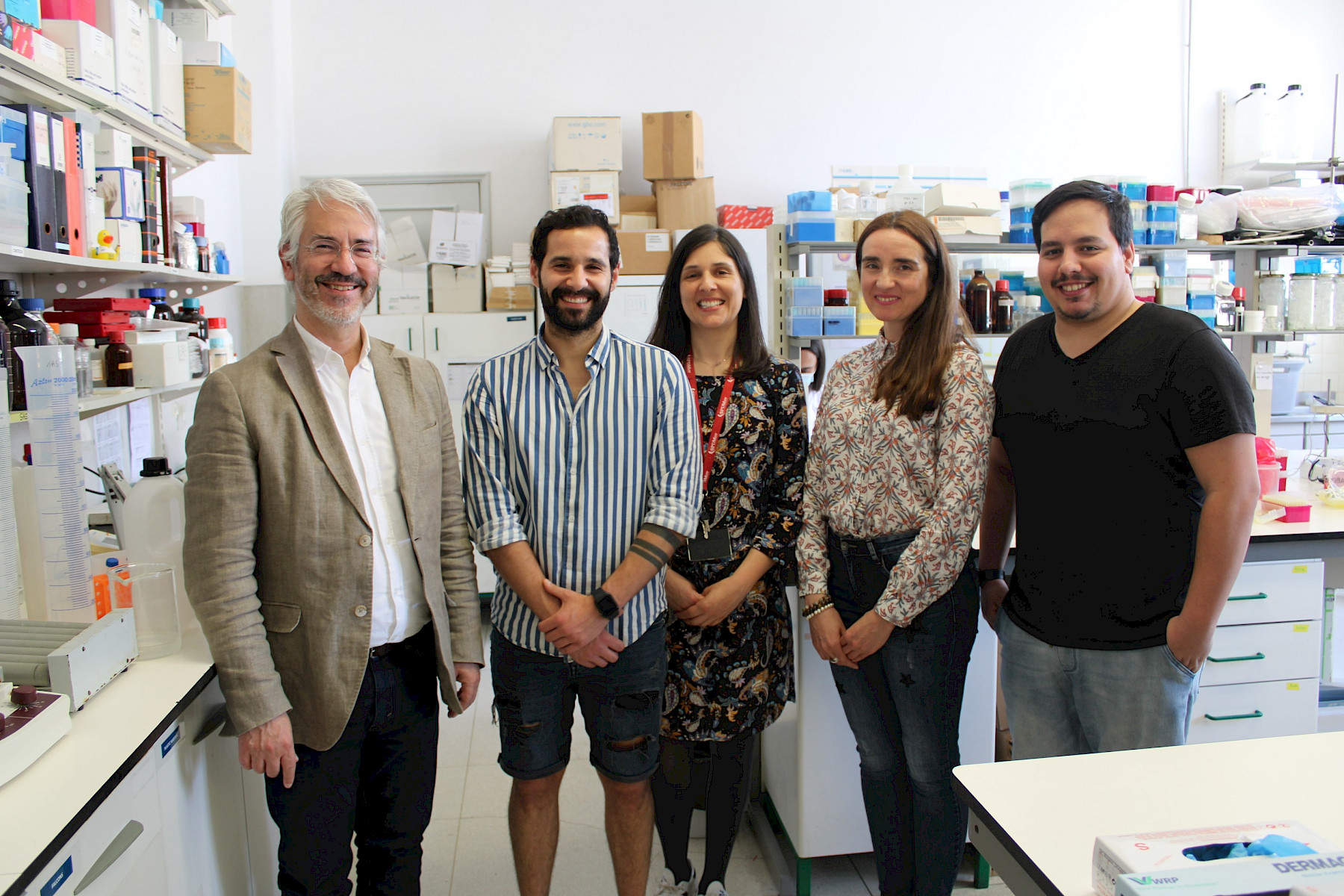Scientists develop cells with potential for long-term treatment of Machado-Joseph disease
The research, led by the University of Coimbra, paves the way for the development of cells that could be used to treat this rare neurodegenerative disease with a high prevalence in Portugal, which primarily affects movement and speech.
Scientists reveal that it is possible to develop stem cells with therapeutic potential from cells taken from patients with MJD
© Rita Félix
A research team led by the University of Coimbra was able to generate human stem cells from skin cells, which have shown to have long-term therapeutic potential for the Machado-Joseph disease (MJD), a rare condition with a high prevalence in Portugal. This research paves the way for the development of cells that could be used to treat this neurodegenerative disease, which affects movement and speech.
In the scientific paper Graft-derived neurons and bystander effects are maintained for six months after human iPSC-derived NESC transplantation in mice's cerebella – published in Nature Scientific Report, the research team reveals that it is possible to generate stem cells with therapeutic potential from cells taken from patients with MJD”, explains Liliana Mendonça, a researcher at the Centre for Neuroscience and Cell Biology of the University of Coimbra (CNC-UC) and the Centre for Innovative Biomedicine and Biotechnology (CIBB).
Machado-Joseph disease is a currently untreatable condition characterised by extensive nerve cell death, difficulties with motor coordination, swallowing and speech.
“Our findings show the feasibility of tailoring therapies for people with this disease by generating stem cells from the patients we want to treat, which will make the transplantation process more successful," adds the principal investigator. Stem cells are extremely versatile and can be used to develop customised cells from different tissues and organs in the human body”.
Machado-Joseph is a rare disease with no available treatment, where brain cells die, especially in the cerebellum. Patients exhibit severe motor coordination problems, speech impairment, and non-motor symptoms, namely cognitive impairments. “It has a high prevalence in the Azores, especially on the island of Flores, which has the highest incidence of the disease in the world”, Mendonça says.
The research team created cells capable of producing neurons in cell culture (a set of techniques to test the behaviour of cells in an artificial environment) and also in brain organoids (tissues produced in vitro, i.e. outside living organisms, that simulate human neurodevelopment by acting as tiny brains).
Liliana Mendonça adds: "We also observed that the human stem cells survived for up to six months after transplantation into the cerebellum of the animal model, after having differentiated into glial cells (cells in the central nervous system that perform various functions, such as supporting neurons) and neurons, suggesting that these cells could positively influence the progression of neurodegenerative diseases.
With this research, the team aims to pave the way for developing treatments for a rare and highly debilitating disease. "There is a great need to develop therapeutic strategies for neurodegenerative diseases that can significantly improve the quality of life for patients, thereby reducing the burden on healthcare systems and the families of these patients," says the researcher
This research, carried out by the CNC-UC Research Group on Gene and Stem Cell Therapies for the Brain, led by Luís Pereira de Almeida, president of CNC-UC, coordinator of CIBB and professor at the UC Faculty of Pharmacy (FFUC), will be extended to study how these cells can reduce the motor coordination impairments caused by the disease in animal models. The scientists aim to develop strategies to enhance the migration and subsequent differentiation of the transplanted cells into cerebellar neurons in the brain. “This could significantly increase the therapeutic efficacy of these cells," emphasises the research coordinator.
Other researchers from the University of Coimbra also participated in the study: Luís Pereira de Almeida, Daniel Henriques (CNC-UC and CIBB), Vanessa Fernandes (CNC-UC), Ricardo Moreira (FFUC, CNC-UC and CIBB), João Brás (CNC-UC) and Sónia Duarte (CNC-UC and CIBB). The research also involved the collaboration of Jens C. Schwamborn, a researcher at the Centre for Systems Biomedicine in Luxembourg.
The scientific article is available at www.nature.com/articles/s41598-024-53542-x.

